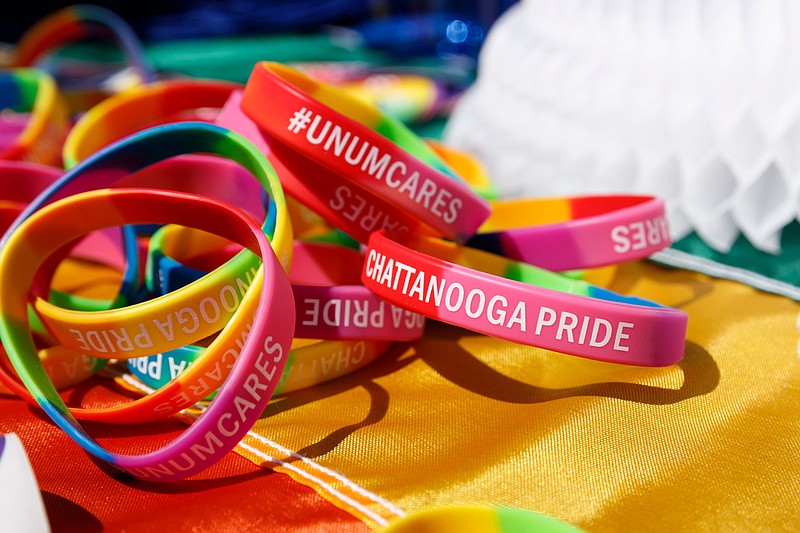Andrea Boyer tended to go silent when clients talked about spirituality.
"When I hear the word spirituality, I feel disconnected because of my experiences," Boyer said.
The Chattanooga counselor grew up in the United Methodist Church but felt anxious being there, even as a child. Boyer recently came out but has long struggled to connect with clients who are dealing with spiritual roadblocks the way Boyer was able to connect with clients about other issues.
On Friday, Boyer was among nine other counselors or therapists learning how to better engage their LGBTQ clients on topics of spirituality and religion at the Chattanooga Event Center.
The training, led by Charity Muse, a therapist and co-founder of Resonance Counseling Center, included a history of LGBTQ spirituality and how to recognize spiritual trauma. In the afternoon, participants discussed their own experiences working with clients during a discussion of case studies.
Therapists and counselors need to be equipped to talk about spirituality because members of the LGBTQ community often turn to them to talk about the topic rather than going to church leaders since they may have been traumatized by the church community, Muse said.
Many religious traditions view homosexuality, and other variances of sexuality and gender identity, as sinful. For example, the Southern Baptist Convention considers homosexuality a form of sexual immorality that should be opposed by all Christians, similar to acts of greed or racism. Similarly, the SBC views transgenderism as being in opposition to God's design.
A 2014 study by the Pew Research Center on the experiences of LGBT people found that 79% said the Catholic Church is not friendly to them and 73% said the evangelical church is unfriendly. Pew Research also has found that LGBTQ people are less likely to regularly attend religious services than straight people.
But just because members of the LGBTQ community are not attending church at the same rate as other Americans does not mean they are not seeking spiritual meaning, Muse said before the training.
"In the LGBTQ community, we get kind of minimized to one aspect of ourselves and especially spirituality tends to get left out," she said. " There's almost an assumption that you can't be LGBQT and spiritual or religious. And that's not true."
Conversations about LGBTQ spirituality are not new, Muse said. Hinduism's Vedas, or sacred writings, refer to a third gender. Gay members of the Catholic Church first gathered in 1946. In 1970, New York City hosted a Pride worship service to coincide with the first Pride parade.
Muse did a similar training in June in Dalton, Georgia, after she saw a lack of this type of training in the area, she said.
The local resource attracted Julie Brown to the training. The Chattanooga counselor said she would otherwise have to go to Nashville or Atlanta for this type of information. She has worked with clients who have been subjected to conversion therapy or dismissed by family members and their church.
"It's not loving to say we love you but we don't agree with what you do," Brown said. "That's not affirming."
Helping people better understand their sense of spirituality can provide a sense of peace and lead to mental health breakthroughs, Muse said during the training. She emphasized, though, that counselors must follow their code of ethics and respect their clients' worldviews, whether or not they include spirituality.
Part of the process in therapy is to help clients understand the hateful messages they may have received at church, but that does not negate their sense of spirituality, Muse said before the training.
"Spirituality is beyond religion and it can include things that people who might identify as agnostic or atheist can identify with," she said. "Things like connection, kindness, personal growth, knowledge, those types of things are within the realm of spirituality."
I became a journalist to help people see people as people. But highlighting the human side of every policy decision, and how it is affecting your community, takes time as well as support from readers. If you believe in telling the stories of people in your community, please subscribe to the Times Free Press today. Contact me at wmassey@timesfreepress.com or 423-757-6249. Find me on Twitter at @News4Mass.
